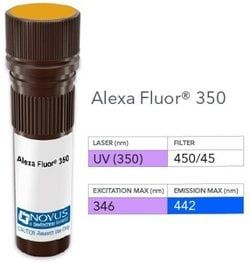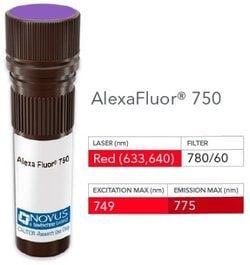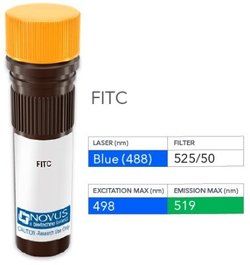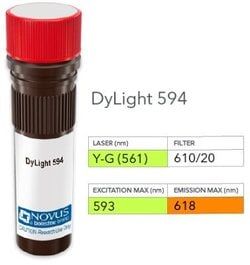Prolactin R Antibody (PRLR/742), DyLight 594, Novus Biologicals™
Manufacturer: Novus Biologicals
Select a Size
| Pack Size | SKU | Availability | Price |
|---|---|---|---|
| Each of 1 | NB006383-Each-of-1 | In Stock | ₹ 55,847.50 |
NB006383 - Each of 1
In Stock
Quantity
1
Base Price: ₹ 55,847.50
GST (18%): ₹ 10,052.55
Total Price: ₹ 65,900.05
Antigen
Prolactin R
Classification
Monoclonal
Conjugate
DyLight 594
Formulation
50mM Sodium Borate with 0.05% Sodium Azide
Gene Symbols
PRLR
Immunogen
Recombinant human Prolactin R (Uniprot: P16471)
Quantity
0.1 mL
Research Discipline
Apoptosis
Test Specificity
It recognizes a protein of 70kDa, identified as prolactin receptor. Prolactin is a pituitary hormone involved in the stimulation of milk production, salt and water regulation, growth, development and reproduction. The initial step in its action is the binding to a specific membrane receptor (prolactin receptor), which belongs to the superfamily of class 1 cytokine receptors. The function of the prolactin receptor is mediated, at least in part, by two families of signaling molecules: Janus kinases and signal transducers and activators of transcription.
Content And Storage
Store at 4°C in the dark.
Applications
Western Blot, ELISA, Immunohistochemistry, Immunocytochemistry, Immunofluorescence, Immunohistochemistry (Paraffin)
Clone
PRLR/742
Dilution
Western Blot, ELISA, Immunohistochemistry, Immunocytochemistry/Immunofluorescence, Immunohistochemistry-Paraffin, Immunohistochemistry-Frozen
Gene Alias
delta 4-delta 7/11 truncated prolactin receptor, delta 4-SF1b truncated prolactin receptor, hPRL receptor, hPRLrI, PRL-R, prolactin receptor, prolactin receptor delta 7/11, secreted prolactin binding protein
Host Species
Mouse
Purification Method
Protein A or G purified
Regulatory Status
RUO
Primary or Secondary
Primary
Target Species
Human
Isotype
IgG1 κ
Description
- Prolactin R Monoclonal specifically detects Prolactin R in Human samples
- It is validated for Immunohistochemistry, Immunohistochemistry-Paraffin.





